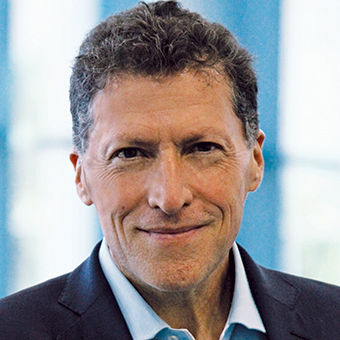
If the world were simple, people would steadily research best practices, choose the most effective ones, and we’d all inch toward a better world.
But when it comes to global solutions, even ones proven to have high value, there are inherent barriers to wide adoption. Local customs, spiritual beliefs, attitudes about government intervention, access to resources and diverse definitions of freedoms and human rights all impact decisions about what’s deemed acceptable to administrations and citizens in different countries.
When it comes to business, however, some of the barriers evaporate. If a practice increases revenue or reduces costs, it’s likely to gain quick adoption.
But despite that seeming advantage, it may not be so simple, in practice, for many businesses. Globally, the majority of people work for MSMEs — micro, small and medium enterprises. Far and away, the vast majority of travel and tourism businesses are MSMEs. Even though small, nimble companies can implement solutions more quickly than larger ones, they are less likely to have the resources to access or conduct research relevant to their business.
This is particularly true in the area of sustainability. As opposed to a multinational corporation, a micro business is unlikely to employ a chief environmental officer who can network with other chief environmental officers to share best practices to reduce both costs and climate impact.
It’s something that Gloria Guevara has thought about a lot. A former minister of tourism for Mexico and former CEO of the World Travel & Tourism Council, she is now serving as chief special advisor to the Saudi ministry of tourism. Inspired by the United Nation’s Intergovernmental Panel on Climate Change, whose mission is to advance scientific knowledge about climate change caused by human activities, she imagined a “travel panel for climate change” and worked to establish the Sustainable Tourism Global Center (STGC).
She made clear that although it is initially funded by Saudi Arabia and will be based in Riyadh, it is not designed to be a Saudi or Saudi-controlled initiative. “Sustainability must be transparent and shared. This is not a zero-sum game. We don’t want to do it alone.”
While the panel will address travel companies and destinations of all sizes, she said she feels that it’s important not to reinvent the wheel. To that end, she underscored the need to build a communications network for MSMEs to share their solutions with one another. “The large companies are the guys who need the least help. [MSMEs] are the ones who need the most,” she said.
For instance, she said, restaurant owners in Athens face the same issues concerning the cost and environmental impact of food waste as restaurant owners in other cities. “The same with plastics. If a restaurant gets 65% of its business from delivery or takeout, what are the packaging alternatives? They need a way to learn and share, both to save money and reduce environmental impact.”
One of her ambitions for the STGC is to produce “toolkits” for MSMEs, including travel agencies.
“Right now, they may have a goal and be aware of some resources, but it’s like having a recipe with ingredients and preparation steps missing,” she said. “For example, if you need to make an investment in sustainability that will ultimately reduce costs, you need to first understand where to get the money for the investment.”
And, as with recipes on the web, she feels the toolkits should include multimedia components, including videos. She hopes to get the first toolkits out before the end of the year.
The STGC has engaged research firms, countries and institutions to come up with recommendations on 100 problems that have already been identified, and it is partnering with major academic institutions and companies. She said she’s intentionally engaging with experts outside the travel industry to expand the knowledge base.
On the issue of food waste, for example, the STGC is working with Stanford University. (The hospitality industry is responsible for 12% of all food waste, she pointed out.) “We need more than academic theory; we need solutions,” she emphasized. And to that point, as regards food waste, it came to the attention of the STGC that a hotel in Malaga, Spain, discovered it was both greener and cheaper to use a biodigester, which turns food waste into energy, than to pay the city to come and haul away its trash.
Over the past four years, since Saudi Arabia has opened for leisure tourism, I have heard cynicism expressed regarding the kingdom’s motivation for positioning itself as a global center of sustainability. But what seems to separate this initiative from some others is that it is inclusive to the point that, following the seed stage, Saudi will give up custody of the STGC.
If being based in Riyadh is the price for the worldwide benefit that the STGC may accrue, I hope skeptics will join me in saying, “So be it.”
Source: Read Full Article










